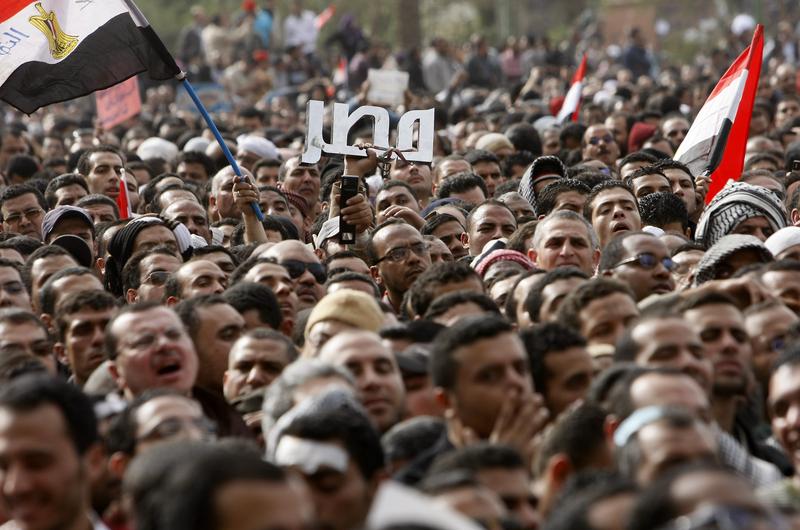
Protests in Egypt have consistently shocked the region and the world in recent days, catching President Hosni Mubarak off guard with calls for his ousting. But President Mubarak wasn't the only one surprised by Egyptian activism; the U.S. leadership has also scrambled to adapt to a changing diplomatic situation, in a region where Egypt's stability is seen as incredibly important.
When the first protests broke out in Cairo last week, President Obama's administration took a cautious position, supporting the right of protesters to gather peacefully but not their call for President Mubarak's departure. By Wednesday, President Obama was calling for a peaceful departure of the Egyptian president that "must begin now." Is the U.S. taking the right diplomatic position in Egypt's crisis? Opinions online displayed a broad spectrum of opinion on the subject.
In speaking to The Takeaway for the new Wave of Change podcast, Leslie Gelb, president emeritus of the Council on Foreign Relations, noted President Obama's slow response:
I think clearly reactive understates it, since for six days they announced a new policy every day.
Nicholas Kristof, reporter for The New York Times on the ground in Cairo, also seemed dubious about America's slow response. Reporting from Tahir Square, where as many as 250,000 anti-government protesters gathered on Tuesday, he noted the frustrations of Egyptians with the U.S. position on change:
These pro-democracy protesters say overwhelmingly that America is on the side of President Mubarak and not with them. They feel that way partly because American policy statements seem so nervous, so carefully calculated — and partly because these protesters were attacked with tear gas shells marked “made in U.S.A.”
Back home in Little Egypt, former Egyptian Ali El Sayed bemoaned what he called 60 years of dictatorship under several leaders, but was also distrustful of an American push for more democracy:
I hope that this administration just doesn't give any suggestions about the coming administration in Egypt…We cannot be the police for all the world…We have to let the Egyptian people decide what they want.
Blogger Justin Krebs was in apparent agreement with that position, noting that the early American response to Egypt's crisis might have been less about supporting an ally in Mubarak than it may have been about supporting the Egyptian people:
...more than protecting Mubarak, the Obama team needed to protect the process unfolding in the streets of Cairo. America has a long, and unfortunate history, of being too hands-on in the regime changes of countries around the world — often with unintended consequences. Whatever results in Egypt will be stronger because it is authentically Egyptian, and not the result of the machinations of powers a world away. This transformation is not “Made in the USA” – it is of, by and for the people of Egypt.
In thinking about the U.S. and Egypt, and comparing the two countries' relative levels of democracy, journalist and blogger Jami Floyd was concerned about a different form of free speech, one challenged more in the Middle East than in America:
Egypt has been the scene of more than 100 incidents involving the harm or detention of journalists in the past 36 hours. I am grateful to my American colleagues in Egypt for standing with Shahira Amin to raise awareness of this important issue. Let us hope their call will draw attention to the underreported risk journalists face around the world.